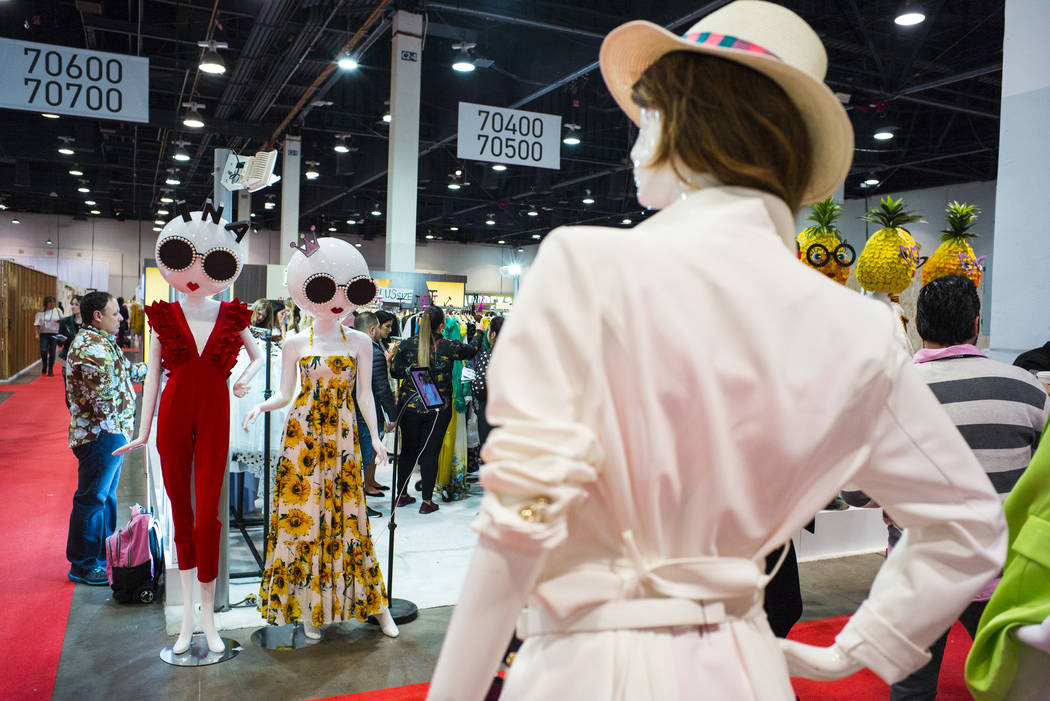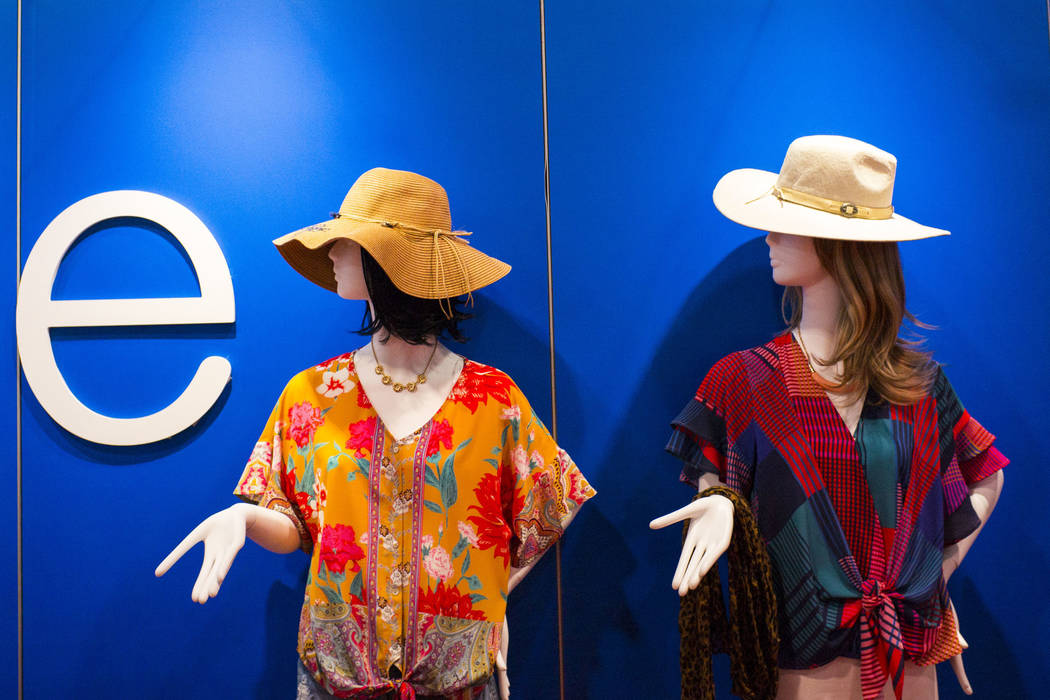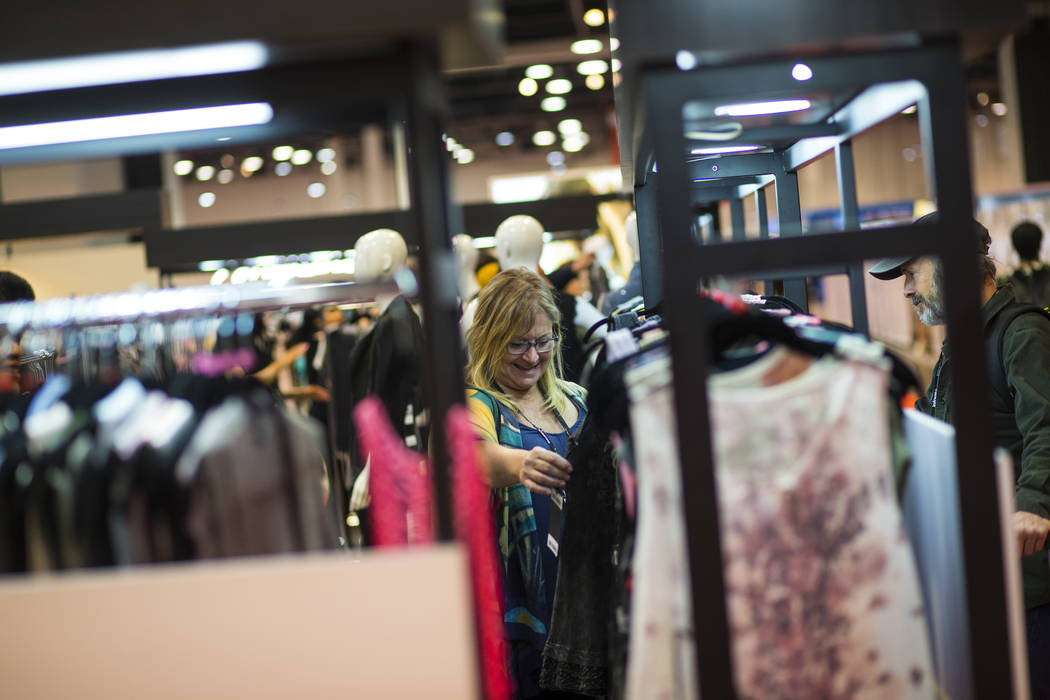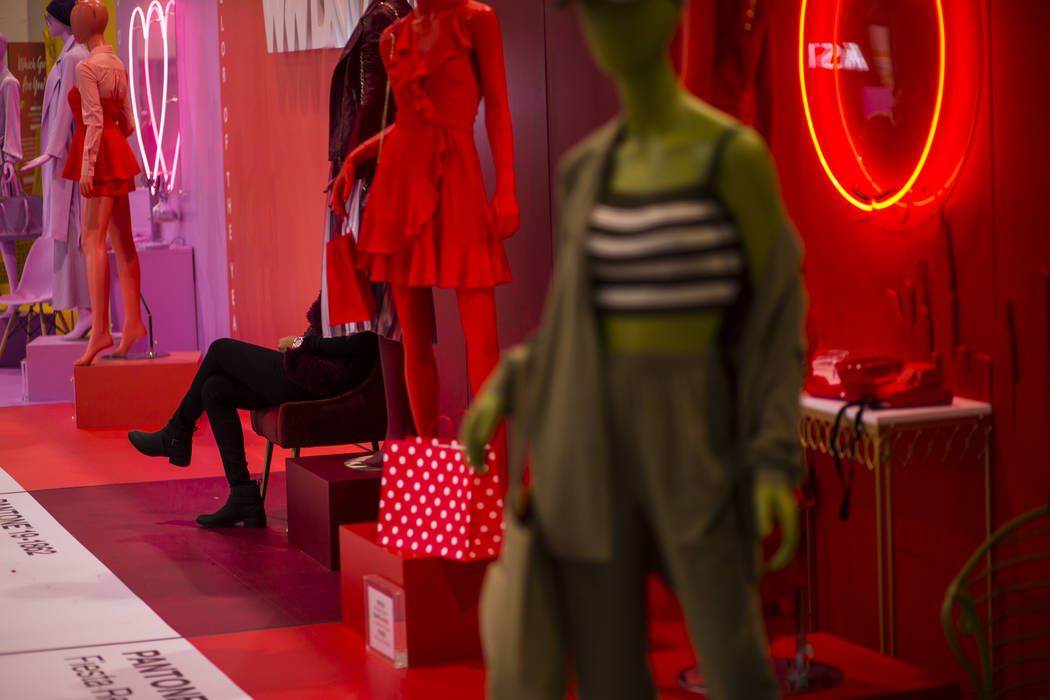MAGIC 2019: Group warns public on real costs of tariffs
If the trade war with China escalates, it could cost a family of four an additional $500 a year for their clothing and shoes.
That’s the outlook from Rick Helfenbein, president and CEO of the American Apparel & Footwear Association, whose 300 members representing 1,000 brands have been on edge since President Donald Trump threatened to boost tariffs against China. Trump reiterated a strategy for punitive tariffs Tuesday in his State of the Union address.
Issues arising from tariff threats are part of a perfect storm of negative change being endured by the apparel industry.
Helfenbein is in Las Vegas this week along with an estimated 78,000 conventioneers attending the MAGIC Marketplace Spring Show 2019 at the Las Vegas Convention Center and the Mandalay Bay Convention Center.
Several categories of apparel industry professionals are meeting as buyers and sellers of various apparel lines and to attend educational sessions on the state of the industry.
A four-letter word
“They all have a vested interest in what’s going on in Washington,” Helfenbein said of his association’s membership. “Since Trump’s arrival, from candidate Trump to President Trump, he took the word ‘trade,’ which was a five-letter word and compressed it into a four-letter word.”
In addition, Helfenbein said 100 million square feet of retail space has evaporated as retailers struggle to solve the mystery of how to market to millennial shoppers more interested in online shopping than going to stores.
“Retail sales were up by 5 percent, in-store traffic was down, online traffic was up and the fact that we had a good Christmas tells you retailers have been adjusting to the new economy,” he said. “They’re learning how to deal with the millennial consumer. They’re learning how to deal with an online consumer vs. an in-store experience and they’ve been shedding all this extra square footage. We used to have 1,500 malls in America. Now, we have less than 1,100. We’ve shed millions and millions of square footage right when president comes up with tariffs and the (government) shutdown.”
Helfenbein said when Trump as a candidate floated the idea of tariffs to square trade imbalances, the retail industry went on the offensive to educate the public about what that would mean for their shopping trips.
He said he understands the need to punish countries that turn a blind eye toward intellectual property theft and the widespread production of knock-off products. But he doesn’t feel imposing tariffs is the way to do it.
‘A bad idea’
“Tariffs are just a bad idea, and they’re a bad idea for reasons that aren’t necessarily apparent,” he said.
Historically, he said, tariff’s have not helped industries as designed because other countries retaliated in kind. He said the Smoot-Hawley tariffs, approved in 1930 and designed to help farmers devastated by the Dust Bowl by increasing tariffs on 900 products by 40 to 48 percent, likely lengthened the duration of the Great Depression.
“And whether the tariffs happen or not at this point for our industry, the damage will not go away,” he said. “You’ll live with that damage for 10 or 20 years.”
While not currently being hit directly, prior to the imposition of additional tariffs by the Trump administration, imports of clothes, shoes, textiles and travel goods represented 6 percent of total imports but accounted for 51 percent of the tariffs collected, the association’s data say.
In dollar terms, if all of products are hit with a 25 percent tariff as has been threatened, association leaders estimate higher prices on goods, shoes and clothing from U.S. retailers.
“It should be noted that the broad categories of apparel and footwear are not currently being hit in the trade war, with the exception of specialty products like hats and leather apparel,” added association communications manager Alexander Gibson.
“That said, all travel goods, such as handbags, luggage, wallets, and backpacks, are being hit with the 10 percent punitive tariff currently. Of course, this is an important part of our industry,” he said.
Contact Richard N. Velotta at rvelotta@reviewjournal.com or 702-477-3893. Follow @RickVelotta on Twitter.
No comment
Rick Helfenbein, president and CEO of the American Apparel & Footwear Association, said he knows why representatives of the hundreds of brands on the trade-show floor at MAGIC don't want to comment on tariffs — they've seen the repercussions of speaking out against Donald Trump.
"When Macy's moved out Trump merchandise, the president had some negative comments about Macy's," he said. "When Nordstrom threw the Ivanka line out, he had some negative comments about that. When one of the major athletic brands started talking about some of the things the president was interested in, there was a lot of blowback from the athletes that were represented."
Nike was in Trump's crosshairs when the company used Colin Kaepernick's likeness in an ad campaign because he led a movement to kneel during the national anthem to call attention to social inequality and police brutality.
"So for individual companies to stick their neck out and have their head chopped off, it's not a pleasant experience," Helfenbein said.






















